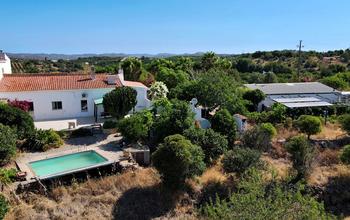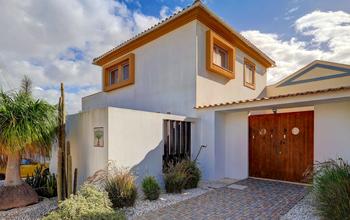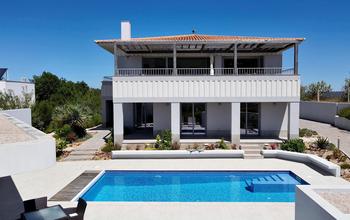Selling Property in Portugal
last updated: January 2018
This section is intended to provide useful and, as far as possible, up to date information on the property selling process in Portugal.
Selecting An Agent
We suggest you select an agency and agent that:
- you feel comfortable working with and who is genuinely enthusiastic about presenting your home to buyers. Ensure that the agent that lists your home will also be the same person that is present for every viewing.
- provides realistic valuations based on local expertise and knowledge of selling (not listing) prices in your area. For obvious reasons you should be wary of valuations from agents that get paid for each property listed as well as agencies that employ dedicated property listers.
- realises how important good quality photographs, descriptions and video tours are in making your property stand out from the mass listings on property portals. Attracting the right buyer's attention is half the battle won. Often properties are discounted from further consideration based on the buyer's first impression being made from an agent's low-quality presentation.
- advises you on how to best present your property, not only for the all-important photos but also for viewings.
- invests in strategic advertising on good quality portals to attract the right type of buyer from the start.
- pre-qualifies buyers before bringing them to your home. An agent that does not follow the common 'spray-and-pray' approach to showing properties avoids wasting both your and the buyer's valuable time.
- communicates regularly and provides feedback after viewings. Feedback is invaluable to help you manage your expectations and assist in better presenting your home.
- accompanies you throughout the entire selling process. A good agent will make sure everything is in place to get you an offer, but also realises that the job is only over when the money is in your bank account.
We also advise against listing your property with too many agencies. To many foreign buyers, accustomed to properties being sold through one agent exclusively, this can make you look desperate to sell.
SeaToSky Homes are happy to provide you with references from actual clients should you wish to verify our commitment to the above ideals.
Presenting Your Home For Sale
First impressions count, and nothing could be truer when it comes to presenting your property for sale. Your property is usually just one in a very long list of properties a buyer will visit, so it’s crucial that they see it in the best possible light. The more desirable your property appears, the better your sale price is likely to be.
This means that your property needs to be clean, tidy and well-maintained. Clear away any clutter that has accumulated to show off the spaces better.
Get any small items fixed like a leaking tap or cracked tile. A property that appears well-cared for is more valuable than one that has been run down.
Not everyone has the same taste in decoration. It is often safer to assume a more neutral style when selling your home. It is a good idea to remove family photos and other highly personal items. Clients need to be able to imagine themselves living in your home, and that is harder to do when surrounded by reminders of complete strangers living there.
Especially in the Algarve, most buyers are looking for a property that has a good connection to the outdoors and opportunities to enjoy the sunshine. Make sure that your blinds are open, patio doors are usable (not locked) and leave the pool and outdoor furniture neatly arranged so that buyers can visualise themselves enjoying that outdoor lifestyle.
Documents Needed
When selling in Portugal, the property must have the following documents:
- From the Local Municipality or Town Hall Câmara Municipal, you will need one of the following documents:
- Habitation License Alvará de Licença
- Building License Licença de Utilização ou Construção
- pre-1951 Certificate Certidão antes 7/8/1951
- From the Finance Department (local tax office) Ministério das Finanças you will need:
- Property Tax Document Caderneta Predial
- From the Land Registry Department Conservatória do Registo Predial you will need:
- Property Registration Certificate Certidão de Teor ou Certidão Permanente ou Certidão de Registo Predial
- Energy Rating Certificate Certificado de Classificação de Energia
- Properties built or renovated after 2004, will also need to provide the Housing Technical Datasheet Ficha Technica de Habitacão
- Properties held in the name of a company or business will need their Business License Certidão Permanente
- Identification documents of the owners
- Citizen card Cartão de Cidadão, or
- Passport and Portuguese tax number numero de contribuinte
These documents prove that the property is licensed for its current purpose (residential or commercial) or shows building permission if the property is still to be built. If the property was constructed before 7 August 1951, and has not been substantially altered since 1951, then a pre-1951 Certificate is needed in place of a habitation license.
This document proves the property is registered with the Finance Department, describes the property, identifies the owner and says whether there are any debts registered against the property. This document should be no more than 6 months old.
This document describes the property, its legal history, and shows any registered mortgages and rights. The document cannot be more than 6 months old.
This shows the energy efficiency of the property. The certificate can be provided only by ADENE (Agencia para a Energia) registered technicians (peritos) and has a validity of 10 years. Once you have chosen a technician, they will come to your property to assess it. They will need to see all the documents for the property before they can issue the certificate. To find a technician in your area visit the ADENE website, currently available in Portuguese only.
This document describes the constructions methods and the materials used in the building or renovation project and stays with the property when the owners change.
This document describes who owns the business and is available online.
The Selling Process
The following steps act as a guideline to what happens after you have agreed a price for the sale of your property:
If you have not already chosen a solicitor, this is the time to do it. Solicitors usually charge around 1% of the sale price for their services. Many sellers give their solicitor a signed Power of Attorney Procuração with specific powers to complete the sale on their behalf. This is easily done in a Notary's office and is recommended if you don't have the time to sign and deal with the bureaucratic part of the process in person.
The buyer’s solicitor reviews all of the documents for the property and draws up a promissory contract Contrato de Promessa de Compra e Venda. The promissory contract describes the property, identifies the owners and the buyers, outlines the terms of the purchase and the timeframe for completion of the sale (usually within 6 months).
The seller and his solicitor review the promissory contract and agree on the terms.
The buyer and seller (or their legal representatives) sign the promissory contract (usually in front of a notary) and at this time the buyers pay the deposit to the seller. This is normally 10%. Under Portuguese law, should the buyer withdraw from the purchase they forfeit their deposit, should the seller pull out of the deal they have to return double the amount of the deposit.
Once the terms of the promissory contract have been met then the buyer and seller (or their legal representatives) meet again either in front of a notary or at a Casa Pronta office for Escritura Publica de Compra e Venda which is the final act of sale. The buyer pays the remaining amount to the seller and the seller hands over the keys to the property. The property is then registered in the name of the new owner with the Land Registry and the process is complete.
Selling Costs
The buyer pays most of the costs involved in the transfer of ownership, including paying the notary fees.
The seller is responsible for their own legal fees, fess for producing relevant documents and possibly capital gains tax on any profit made on the sale.
This information is provided as a guideline to clients and, to the best of our knowledge is factually correct at the time of writing. Laws in Portugal are constantly changing - it is advisable to check your personal situation with your financial advisor.
Hot Properties


